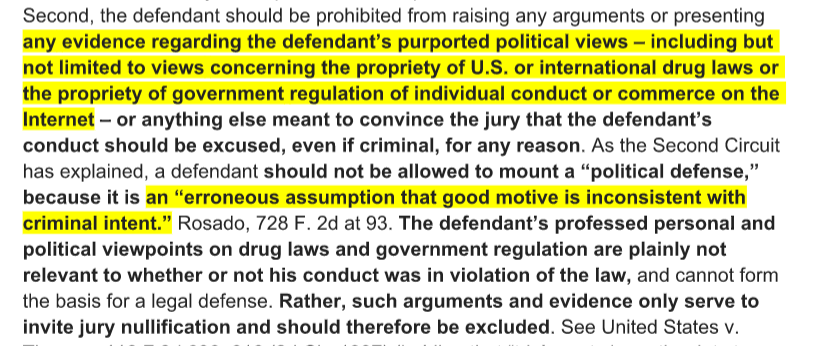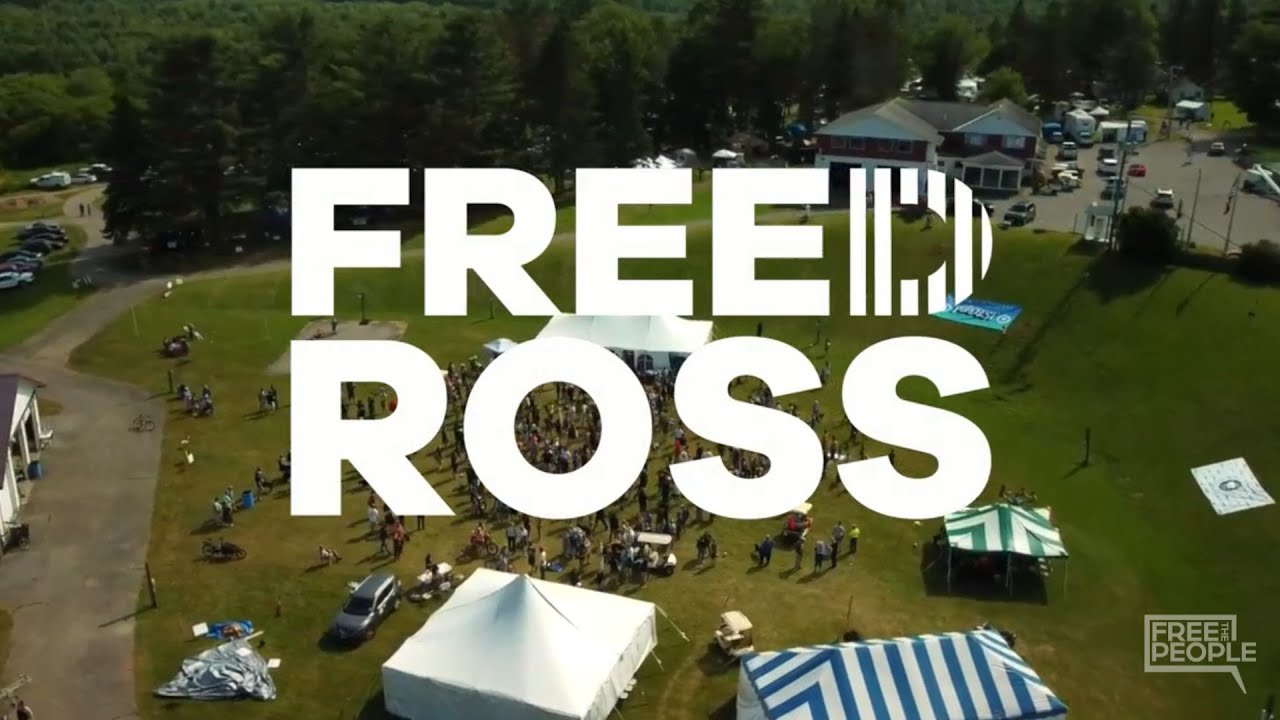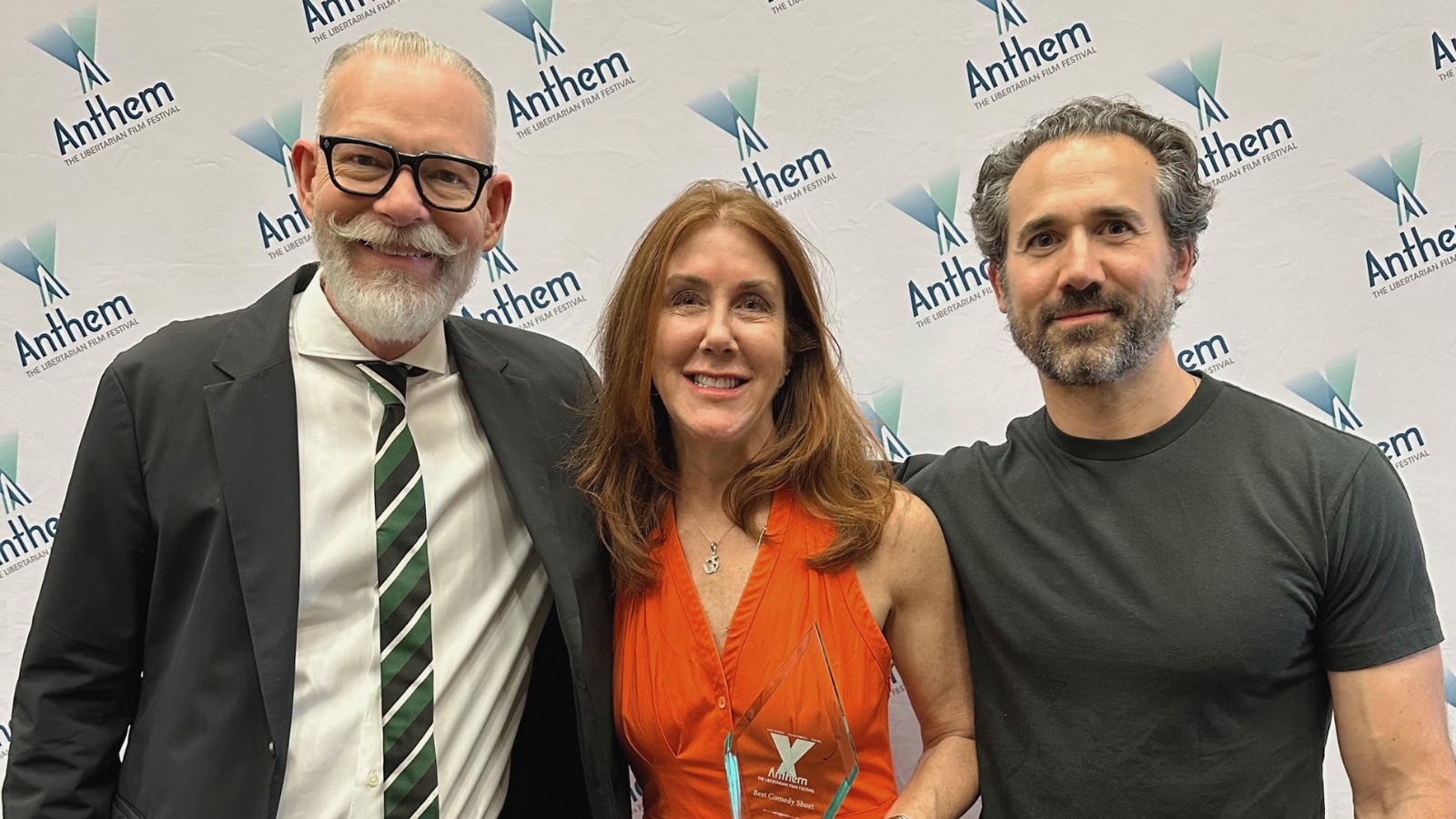
Ross Ulbricht Should Be Freed in a Fair Trial
The criminal trial of Ross Ulbricht, the man alleged to be the “Dread Pirate Roberts” who started the darknet’s Silk Road website, is coming up soon. As might be expected, the prosecution in the case are engaging in shady tactics, such as not permitting the jury to hear about Ross’s own political views.
The website was started with a driving motivation of creating a free marketplace for people to use to exchange peacefully. If Ross shares this view, why is this not a relevant fact? How can there be a fair trial if the jury is not permitted to hear any evidence concerning the possible motivation of the accused?
It cannot be. Accessing the thinking of the accused, one might suppose, is absolutely critical for the jury to decide a case. If the jury has no clue about the whole of the circumstances here, it is not being given the full picture.
So the question becomes: why is the prosecution doing this? It’s because the government doesn’t want jurors to have any real skepticism concerning the laws themselves, even though drug laws themselves are under fire from informed intellectuals and voters all over the entire country.
Based on his writings, it’s pretty clear that Ross is a libertarian, which is to say that he believes that in a society that aspires to be free, mutually beneficial trades of all sorts should not be subjected to criminal prosecution. Generally speaking, this is a theory of politics that is at the heart of the American experiment in self government. That his views in this regard are being excluded from the proceedings is very telling, and wrong.
Here is a sample of the prosecutions’s request:

In other words, the prosecution fears that the jury will consider the case and decide that there is something fundamentally wrong with the drug laws. If that is true, even if Ross is guilty of the charges, he should still be considered innocent in a larger sense. There is nothing historically unprecedented about this approach. Indeed, there is massive documentary evidence that a major purpose of trial by jury is precisely so that the law as well as the accused can be accessed by regular citizens. This is an important and essential check on government power.
In recent years, cases in which jurors have declined to convict are growing. This reality is driving forward the reform efforts of many laws over drugs (1 2 3 4 5), firearms (1 2), free speech (1 2 3), raw milk (1 2), peace activism (1 2), and many other cases (1 2 3 4 5).
It’s part of a trend that is actually effective in limiting government power. It is succeeding where elections, legislative battles, and public protests are not. The jury is a rare case in our system where the people do have a modicum of political freedom to have some say about the system under which they live. If the jury comes back with a non guilty verdict, there is no recourse left to the prosecution.
All credit goes out to the Fully Informed Jury Association for its thankless activism in educating potential jurors about their rights. Judges and prosecuting attorneys certainly aren’t doing it. Their work has been a critical if unheralded tool in the ongoing efforts to do something about out of control government power.
What is the case for Ross even if he is shown to be the man in question? He is not accused of producing, distributing, or consuming any illicit drugs himself. His supposed crime was being the administrator of a website on which people engaged in peaceful exchange, directly with each other. At worst, all he did was fail to to enforce federal law against the users of the Silk Road network.
What is the case for the Silk Road? Well, for one thing, the government’s takedown is completely moot. There are now many more silk roads out there. The first was replaced by a second and the second by a third. In additions, there are a dozen other sites out there that provide a reliable peer-to-peer system of commercial exchange that live outside the strict confines of the law. They will proliferate and grow. Nothing can change that.
Who has an interest in shutting them down? There are three parties: meddling politicians who are trying to manipulate voters, entrenched bureaucrats who like to exercise power, and drug lords who don’t want to see their monopoly control over drug markets threatened. P2P exchange networks threaten the interests of all three.
Regardless, no one can stop the progress toward getting the drug trade off the street and into cyberspace where there is reputational accountability, free entry and exit, and, above all, peace. And let’s just be realistic here: no one will ever get rid of the production and consumption of illicit drugs. The only question is whether this trade is going to take place in a way that is peaceful and productive or risky or violent.
But let’s say that is a hard truth for you to swallow. Imagine it is your son or daughter. He or she is interested in trying pot or ecstasy or cocaine. It’s been known to happen. Would you rather he or she have to mix with the drug-trading culture, risk life and limb crawling around dark corners or society, throw the dice concerning the safety and quality of the drug in questions — or do it all from the desktop where the risk of drug taking is the only serious risk he or she undertakes? Wouldn’t you rather his or her supplier get the stuff in a manner that insures against poisonous death?
It’s a bit like it was during alcohol Prohibition. In those days, bootleggers distributed killer substances at a profit, and cases of poisoning were legion. That all came to an end once market accountability and competition came into play with legalization. That same course needs to be taken with regard to drugs.
Truly, lives are stake here. P2P markets really do offer a solution to the problems created by the drug war. Millions have died or languished in jail. If Ross really did innovate here, it is much to his credit. He would emerge as a man of peace seeking to improve society. If that was part of his motivation, jurors have every right to know it and judge his actions in light of that fact — and judge the law too, which has brought so much human suffering where it is absolutely unnecessary.
Free the People publishes opinion-based articles from contributing writers. The opinions and ideas expressed do not always reflect the opinions and ideas that Free the People endorses. We believe in free speech, and in providing a platform for open dialogue. Feel free to leave a comment.




Winter Trabex
From the judicial trend I’m seeing, I feel like they will soon do away with juries altogether. We already live in a country in which the Constitution is not legally binding in a defacto sense. Criminals are defined as those who go against the grain, while heroes are defined as those who serve the state. There is no impartiality in that. We would be a lot better off if we did away with courts altogether and let people decide for themselves how to redress their wrongs.
Joseph Perrelli
I would have to agree but I don’t think they will be able to pull it off. Trial by jury is considered one of the most basic constitutional rights and also one of the most clear cut items in the bill of rights. People are stupid but it would take quite a large shake up for them to remove trial by jury outright and I think they get 90% of what they want out of just the grand jury’s anyways.
Joseph Perrelli
I should add that the continued use and creation of workarounds to conventional trials is a far more likely scenario as people pay less attention to that.
Joe Johnson
Today it’s a case of policy over civil freedom. The law is a mere convenient excuse.
Jeffrey, it seems as though you’re pointing toward jury nullification, without directly saying so. Do you think you could provide an article addressing this tool, it’s use, viability, power (or lack thereof)?
Jeffrey A. Tucker
Yes, the links I provided have all the good stuff